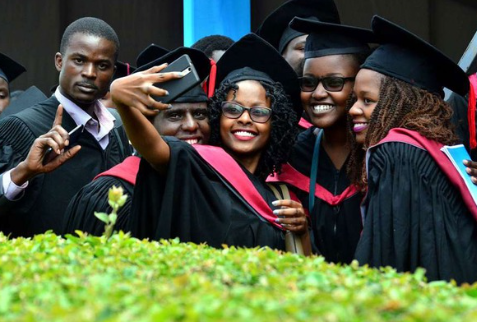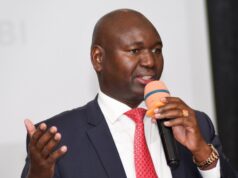The current discussion about how to address the issue of unemployment is centred on getting graduates to alter their thinking. Rather than waiting to be hired, the graduates have been forced to be innovative, start their enterprises, and work any job that pays them, rather than waiting to be hired in their field of study.
Stephen Karuga, a graduate of the Catholic University with a bachelor’s degree in commerce, had to devise a means of sustaining in Nairobi. After all, all previous attempts to get work had failed. Rather than dying of poverty, Karuga chose to work by providing protection services to Boda Boda operators. He was looking for a parking place near Mama Lucy Kibaki hospital, where he provides parking services to Boda Boda drivers who have personal meetings within the hospital or in the surrounding area.
“I just collect KES30 per motorbike, and on a good day, I can get up to 50 motorcycles.” This corresponds to KES1500 every day, which he considers being “decent money.”
When you were a kid, what did you want to be when you grew up? Most, if not all, of us, aspired to be physicians, engineers, attorneys, and other professionals. People choose such occupations because they are seen as respectable and pay exceptionally well.
Mr George Kanyi is another scholar who is doing something he never expected to do. The 32-year-old, who presently resides in Nairobi’s Saika neighbourhood, holds a bachelor’s degree in statistics from Nairobi University. His repeated attempts to find an office job, however, were fruitless. To make ends meet, Kanyi took out a loan and bought a motorbike, which he uses to run his Boda Boda business to this day.
Even though this profession is unrelated to what he studied in college, Kanyi is pleased to be able to feed his family.
“But instead of wasting time looking for unpromising work, I’ve learned that it’s better to do what’s obtainable as long as it pays at the end of the day,” Mr Kanyi said, adding that “what we all want when we go to school is to at least find something to do and make money eventually, regardless of where it comes from.”
Boaz Obuya, who now lives in Utawala, Nairobi, graduated from Kisii University with a bachelor’s degree in Analytical Chemistry. He is now employed as a private instructor at a Utawala academy, where he is paid KES15,000 per month.
Obuya, like other graduates, believes that his word choice was dictated by need. “It’s really difficult to get work in Kenya if you don’t have any money.” Walking from one location to another costs money, whether for transportation, food, or other expenses. Furthermore, most individuals expect bribes from job searchers, making it impossible for broke grads to get work,” Mr Boaz argues, adding that the situation is exacerbated by businesses that want experience from new graduates.
From the foregoing, it is evident the lack of work opportunities in Kenya has prompted many other graduates to be resourceful and perform unskilled work, regardless of whether or not these activities are related to their educational degrees.
In practice, joblessness in Kenya has been a source of worry for Kenyan graduates. Graduates taking odd jobs like washing cars, labouring on building sites, and other sporadic works have been widely reported in the media.








